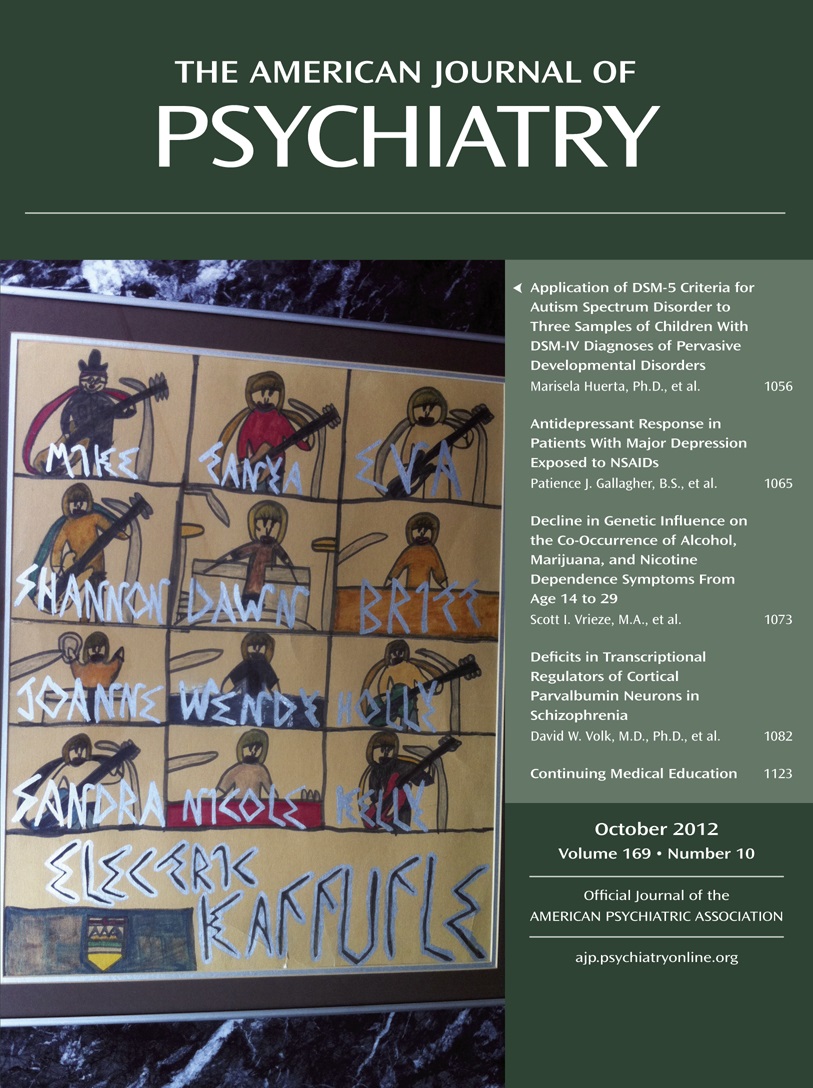T
o the E
ditor: A consensus exists that schizophrenia is not a single disease, but the final pathway of a variety of still unknown neurobiological derangements. Several treatable autoimmune brain disorders have been identified that present with psychotic symptoms that, in some cases, resemble those found in schizophrenia (
1). Antibodies target synaptic proteins, interrupting synaptic transmission in brain networks supporting cognition and emotion. Particularly relevant are autoantibodies against the NR
1 subunit of the
N-acetyl methyl
d-aspartate (NMDA) receptor, which result in diminished NMDA receptor activity, now considered a hallmark of schizophrenia (
2). In patients harboring these antibodies, initial psychiatric symptoms are usually followed by dyskinetic movements or seizures and decreased respiratory drive, with a reduced level of consciousness often requiring intensive care (
1). However, it could be postulated that a limited form of the disease may result in a milder syndrome akin to schizophrenia. We tested this hypothesis using serum from patients with a first psychotic episode referred to the regional psychiatric center of the province of Alava, Spain, and from healthy comparison subjects. All participants were enrolled after giving written informed consent according to protocols approved by the local institutional review board. Blood was drawn and sera were frozen for subsequent study, blinded to patient-control status. After a 1-year follow-up, sera of patients who then met DSM-IV-TR criteria for schizophrenia spectrum disorders were tested for antibodies to NR
1 and other cell surface antigens using three criteria (immunohistochemistry on rat brain slices and dissociated rodent hippocampal neurons, and a cell-based assay in which human embryonic kidney cells recombinantly express NMDA receptor), as previously reported (
1). Patients (N=80) and healthy comparison subjects (N=40) did not differ statistically in age (mean age=29.4 years [SD=9.9] and 30.7 years [SD=9.4], respectively) or sex (28% and 38% women, respectively). Anti-NR
1 IgG antibodies were not detected in either group. Both groups had four cases with sera reactive to other still unidentified neuronal surface antigens. Our findings and a study of seven patients with schizophrenia (
3) fail to support the hypothesis that NMDA receptor IgG antibodies are present in the sera of patients with schizophrenia. Although another study (
4) reported NMDA receptor antibodies in the sera of some schizophrenia patients, it was performed without a control group, and test specificity was lower (only one of the above criteria was applied); differences in the clinical diagnosis could also explain the discrepant findings. It should be noted, however, that our study does not rule out the possibility that some patients have antibodies in only the cerebrospinal fluid, but not in serum (
1). Additionally, antibodies could be present in patients with acute psychosis not meeting DSM-IV-TR criteria at 1 year.

